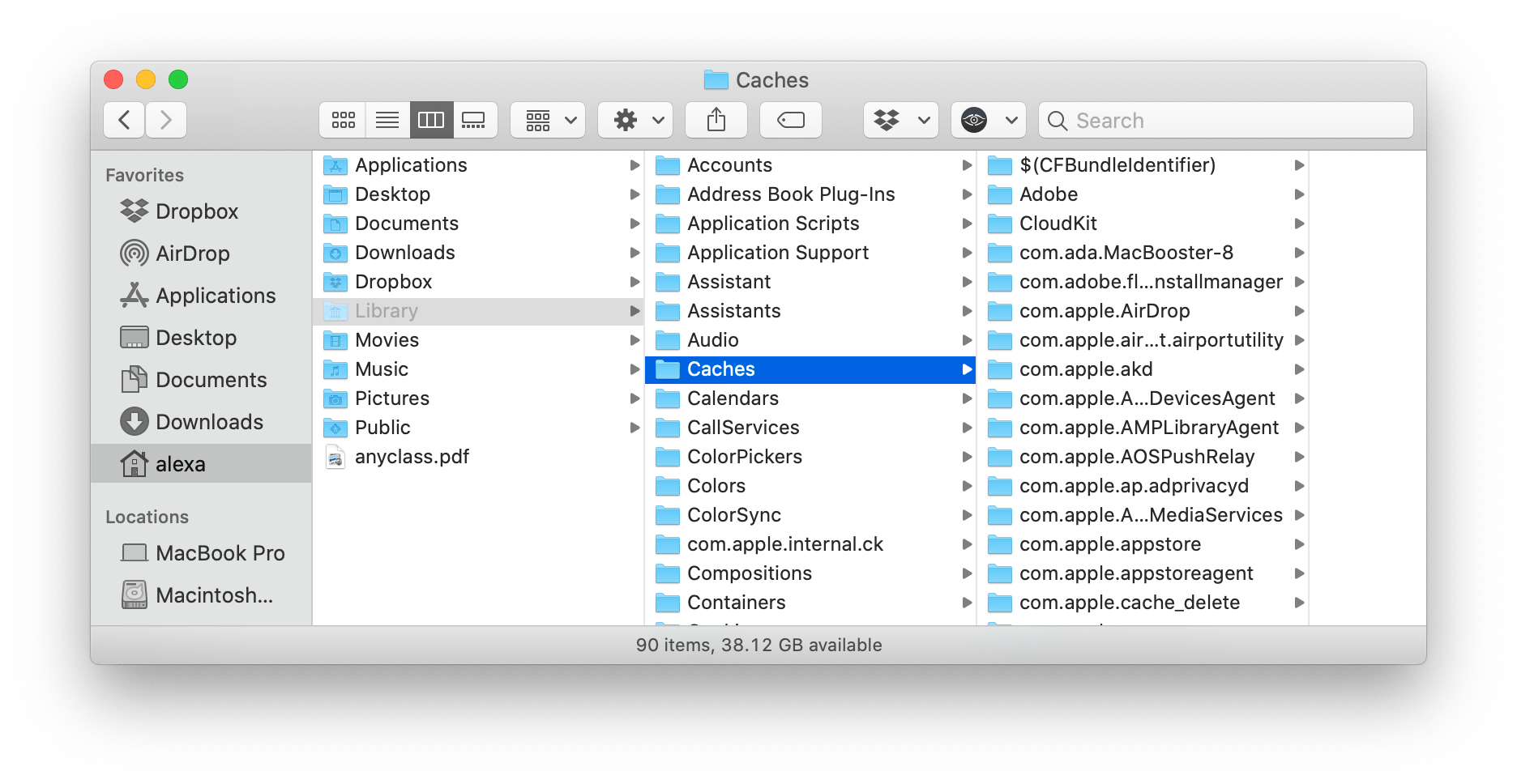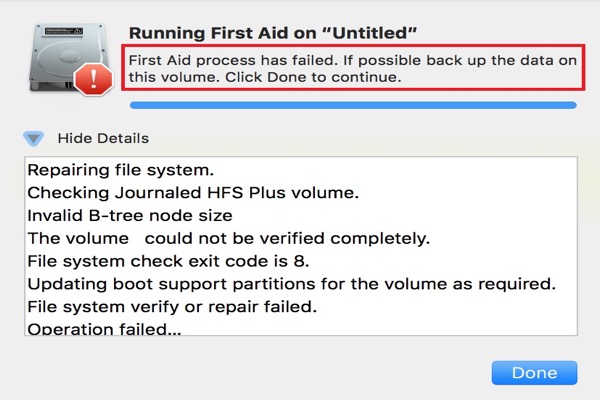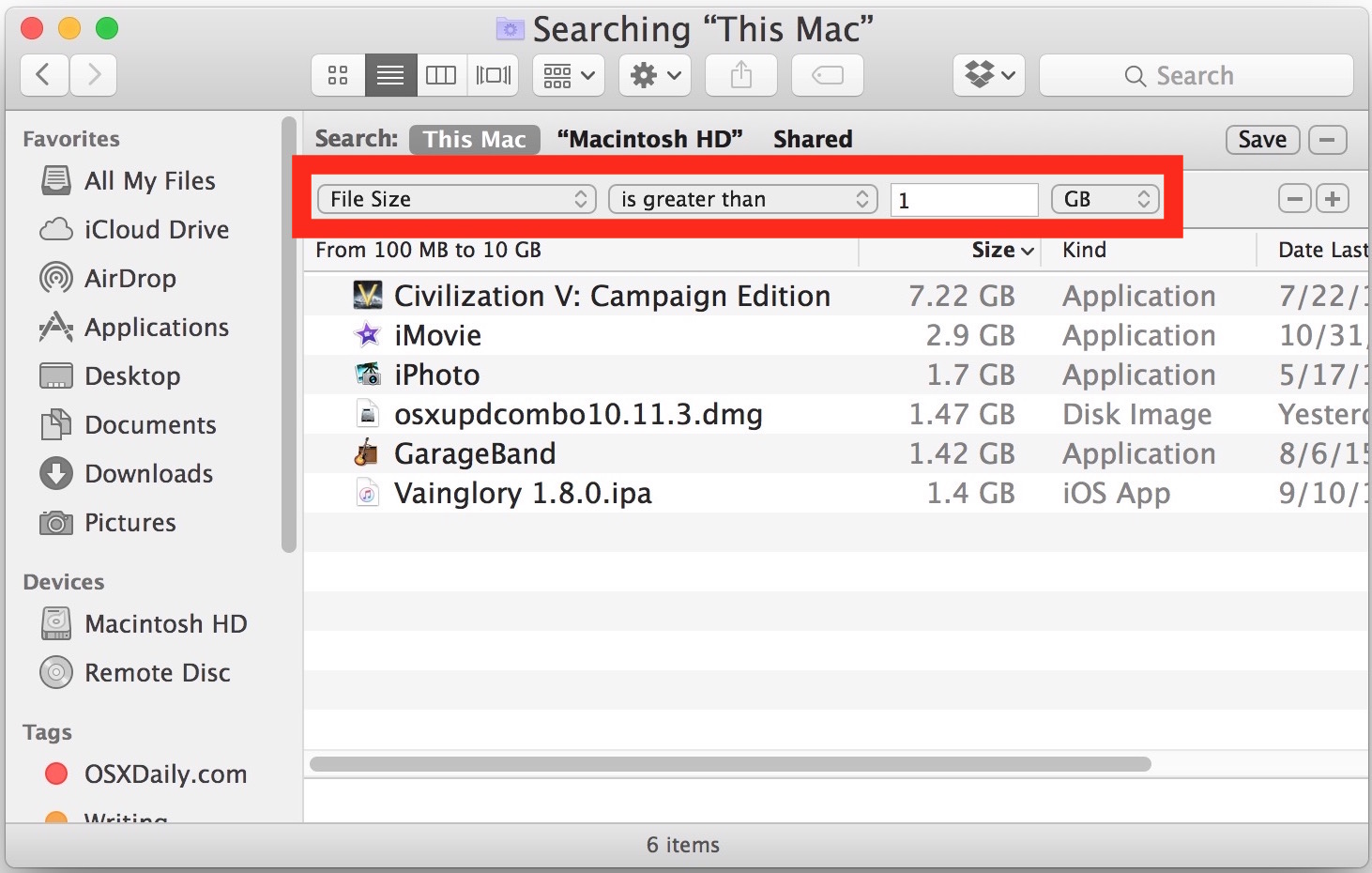

- #Check mac hard drive space 10.7 mac os x#
- #Check mac hard drive space 10.7 series#
- #Check mac hard drive space 10.7 download#

The same is true for iPhoto libraries and other "packages" in OS X.

Your iTunes collection may be several gigabytes, but it won't appear here because each file inside that collection is smaller. Note that this is searching for individual files that are greater than 1 GB. I find 1 GB is a good place to start, but you may want to start lower. Once you have Size as an available attribute, search for large files. Select the "Size" attribute, and if you want it to appear in that drop-down, click the "In Menu" box as shown above. Note that I have typed "size" into the box at the top-right of that window, and Spotlight is only showing me search attributes that include the word 'size' anywhere in the description. Select "Other." from that list, and this window will appear: Select "Kind" and a drop-down will appear, showing several search criteria. In Finder, enter the search box either by clicking into it, or type ⌘ + F to open the Spotlight search window: You just have to tell it that's what you want to search for. It may not be immediately obvious, but Spotlight can be used to find files based on size. You can easily navigate to your Volumes directory in the Finder: go to the Go menu, choose Go to Folder, type in "/Volumes" and hit Return.ĥ) Use Spotlight to look for large files. You think it is going onto the external drive, but in fact, it's just being copied onto your hard drive. The drive disconnects, but the operating system doesn't notice, so it creates a folder in /Volumes/ and copies the information there. Here's what happens: you're copying files to an external drive or making a clone of your boot drive, and something goes wrong. Be extremely careful with the sudo command, as it is possible to do some real damage if you begin experimenting.Ĥ) Check /Volumes/. That should take care of any out-of-control log files.
Launch Terminal.app (also found in the Utilities folder), and paste in these commands (you will need to enter your administrator password):
#Check mac hard drive space 10.7 mac os x#
If your computer isn't left on 24/7, it may not catch up on routine maintenance that cleans out system logging files and other under-the-hood bits (although, in versions of Mac OS X from 10.4 onward, the system should run those cleanup passes automatically if it's asleep when they would normally be active). This is only a temporary gain (if your computer starts to swap again, the space will be used again), but it may help in a pinch.ģ) Run periodic cleanups. Launch Activity Monitor (it's in your /Applications/Utilities/ folder), select the "System Memory" tab and check how much is listed next to "Swap used" - you can reclaim that space by rebooting. There may be a bunch of files you think you deleted, but they're still hanging around in the trash.Ģ) Check swap space. Am I going to have to replace my hard drive?") and acceptance ("I can fix this!").īefore you rush out to buy a new hard drive, here are six simple (and free) steps that may help you reclaim "lost" hard drive space.ġ) Empty your trash.
#Check mac hard drive space 10.7 download#
"Your startup disk is almost full." This simple sentence can trigger all the stages of grief: denial ("That can't be right!"), anger ("This is a 500 GB drive!"), bargaining ("If I delete the podcasts, will you let me download the new iOS update?"), depression ("Ugh, this is going to take all day.
#Check mac hard drive space 10.7 series#
More Mac 101, our ongoing series of tips, tricks and helpful hints for new Mac users and curious veterans.


 0 kommentar(er)
0 kommentar(er)
